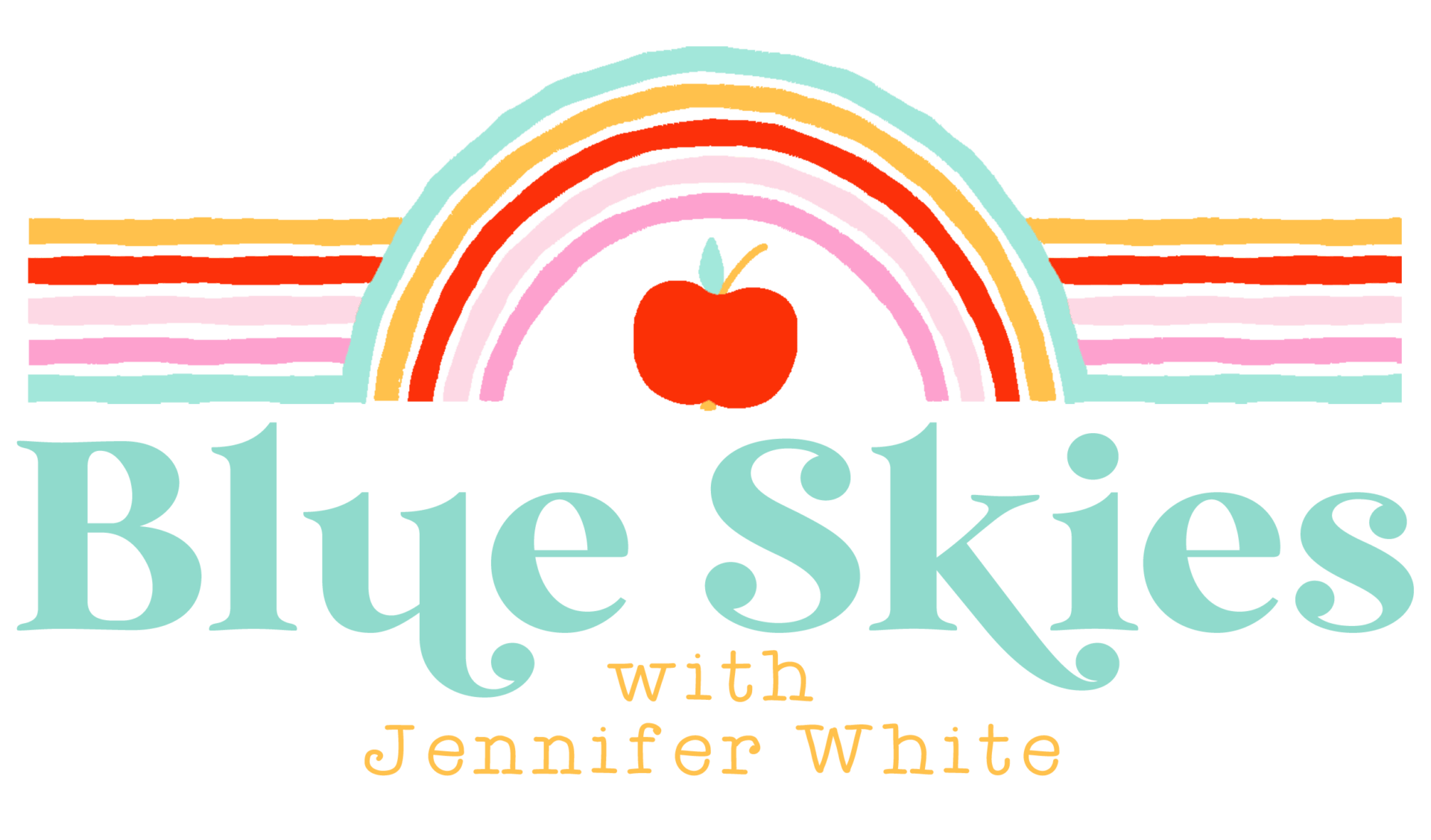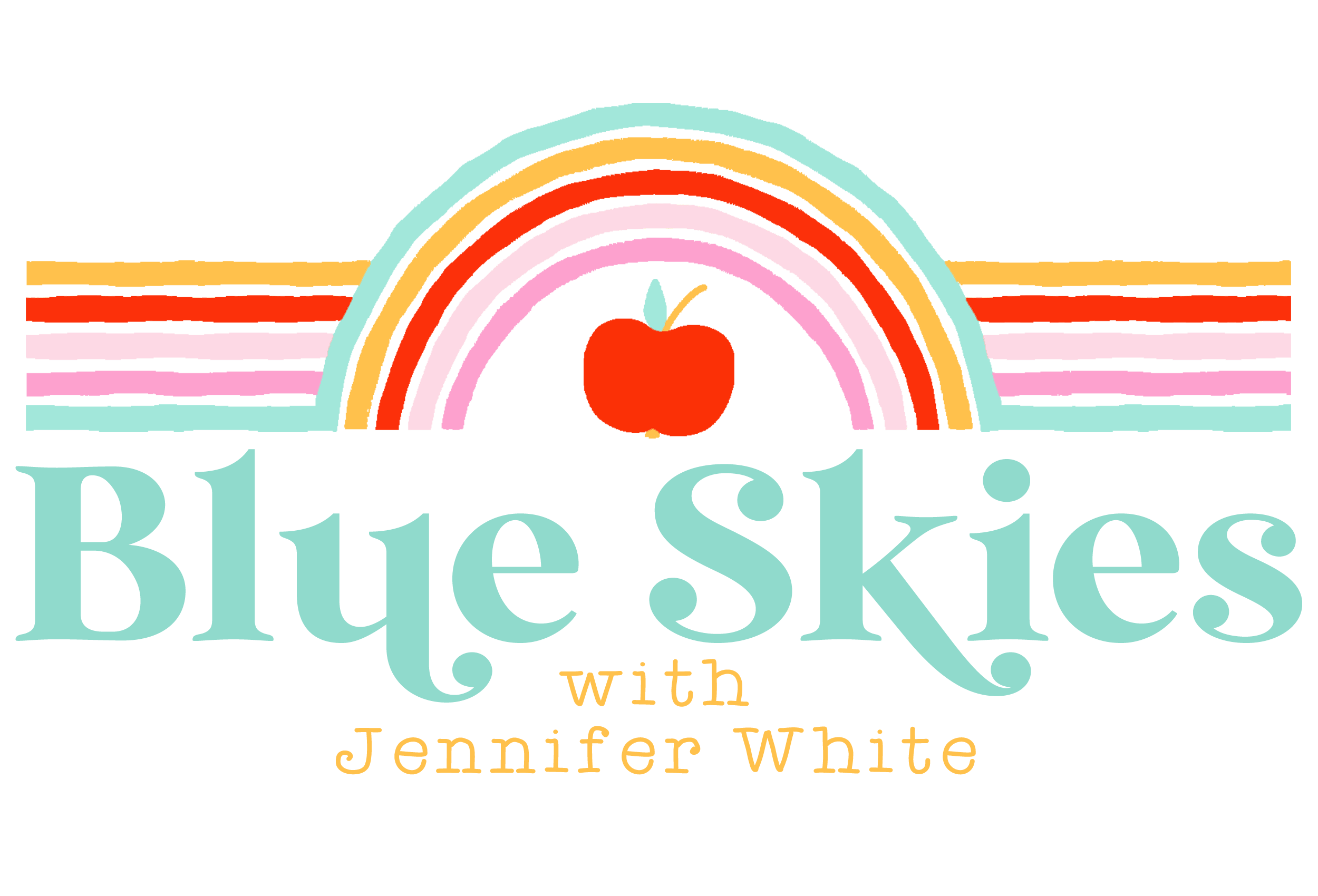Guest Blogger: Mrs. Wheeler!!
Guest Blogger: Mrs. Wheeler
Hello friends of First Grade Blue Skies! My name is Megan Wheeler and I am a first grade teacher and blogger over at Mrs. Wheeler’s First Grade. I have been blogging for almost two years and I love it! It consumes way too much of my time!! If you’d like to learn a little more about me, click here! I am excited that Jennifer has let me do a guest post for her awesome blog!!
I am going to post about what I know best: Writing Workshop! I did my Master’s Thesis on this and feel very comfortable teaching it. In fact, writing is my favorite subject to teach. But…when I first started teaching 9 years ago, it was my least favorite! Today, I am going to share some basics with you about the workshop.
I am sharing with you what works for me. This is after 7 years of trial and error. I have been running a very smooth writing workshop for about 4 years now, and hope that you will find these ideas helpful in implementing your own workshop. If you are interested in any of the resources that I use/mention in this post, please check out my Writing Workshop Start up Kit. It is geared towards first and second grade.
Prior to beginning (day 1 of writing), students and I web all the ways we use writing and discuss why it’s important. Next, I do a think-aloud where I talk about things I COULD write about vs what I SHOULD write about. I make it very clear that in our classroom, we write about real things that have happened to us. It’s very important that right away students understand that while we learn the writing process, we will mostly focus on real events (personal narrative writing).
Below I will highlight the main points of the workshop, weeks 1 & 2 (beginning of year):
Week 1
Mini-lessons:
- I do TONS of modeling, thinking out loud, and writing. I do not spell words incorrectly. While it’s important to model stretching words, I prefer they are spelled the correct way so the students can see how they really look.
- I always keep my mini-lessons quick and to the point (no more than 7 minutes). I end my mini with modeling a “turn and talk.” Students turn to a friend and share their idea for a story. Off they go to their seats to write. *I do not let them color until after they have written words and sketched a picture.
Independent Writing time:
- Prior to beginning, I really make a huge deal about how serious writing time is. I expect the room to be at its quietest during writing. Students are allowed to whisper if they are discussing their stories. During the first week or two, I float during independent writing time, pointing out “smart things” that students are doing (capital letters, thinking of an idea and putting it on the paper, etc..) I only expect about 5-7 minutes of independent work time at this point. As students “finish” a piece, they are allowed to add to an old story’s picture, add to an old story’s words or get another paper and start a new story about a different topic. An anchor chart of this is included in my writing start up pack. I have paper trays in my room and the students are trained to get up and get paper without asking or telling me. I put several types of paper out for differentiation of ability levels. A variety of paper templates are also included in my writing pack.
After the workshop share:
- Early in the year, I choose 2 students to share what they have worked on that day. *It does not matter if they are finished with their story or not. They show what they have worked on, and tell about their plans for tomorrow. Students then give compliments out. It takes some time to get students familiar with appropriate commenting.
WEEK 2
Mini-lessons:
- I continue to do lots of modeling, thinking aloud and writing. However, now I start to choose one skill that I want students to work on (don’t overdo it!!), such as spacing, a capital letter at the beginning, etc…This is my main focus for the week (or longer, depending on how they do).
Independent writing time:
- If my class is ready, this is when I begin conferring with 1-2 students per day. I prefer to keep a composition notebook, with a page for each student. I work 1-on-1 with the student during his/her conference, and other children know not to interrupt. The notebook is nice because I just flip a page and move onto the next student the next day. I am sure to hit all my kids each week. I make notes about what the student does well, and give lots of praise. I also note something that we worked on together. I always tell the student what they could improve on…BUT I am careful to only choose one thing (handwriting, stretching words, spacing, etc..) More conferring ideas are included in my writing workshop start up pack.
After the workshop share:
- As stated above, early in the year, I choose 2 students to share what they have worked on that day. *It does not matter if they are finished with their story or not. They show what they have worked on, and tell about their plans for tomorrow.
I hope this helps you. Please visit and become a follower of my blog,
www.mrswheelerfirst.blogspot.com to read more about this and other topics. I will be having a big giveaway once I hit 1,000 followers and reach my 2 year blogging anniversary on August 26!! Stay tuned! Thanks again to Jennifer for letting me stop by!
-Megan-








I loved this!!!! Writing is one of my weakest subjects. I'm off to check out your writing stuff now.
I'm loving this post! Beefing up my writing workshop is what I'm working on this year and this is just the perfect post! Thanks for sharing!
Hooray!!!!!!!!!!!!!! Thank you again, Jennifer!
I absolutely appreciate ANY tips that you have on writing workshop. That is usually my most challenging thing to teach. I am checking out your writer's workshop pack. 🙂
Lisa
Learning Is Something to Treasure
I love this! This goes with what I follow as well for writing workshop. But I'll definitely look at this to help enhance the first couple of weeks. Thanks so much!!
Shibahn
http://www.landoflearning.wordpress.com